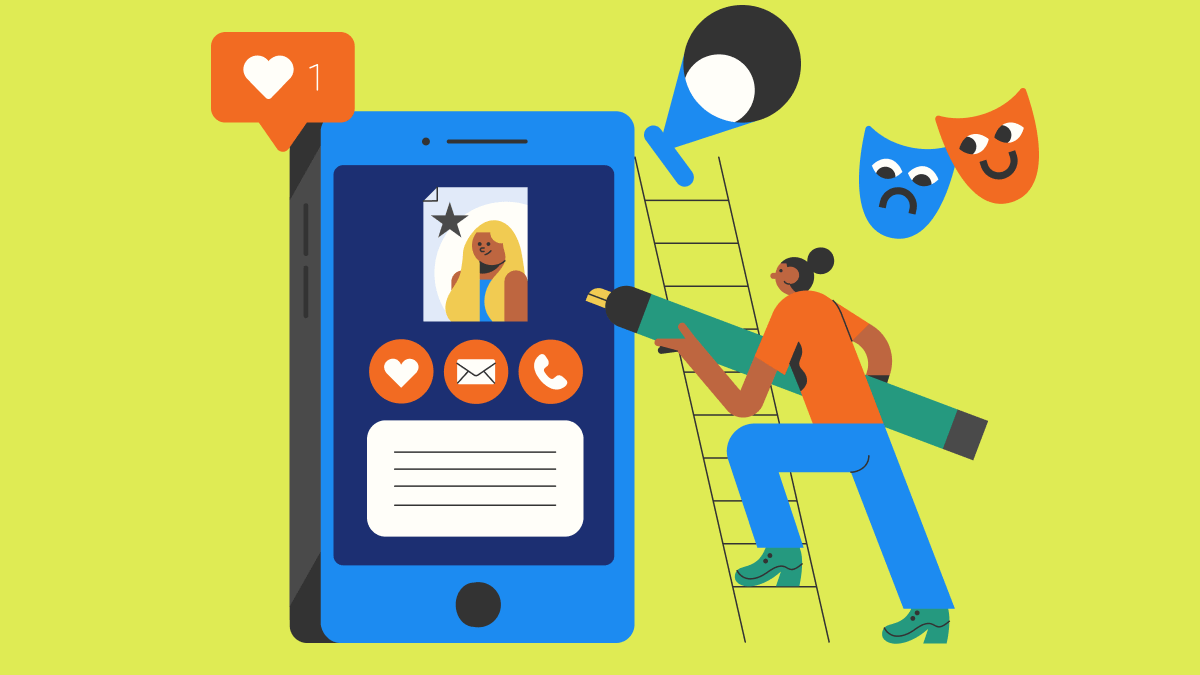Does Tiktok keep you up at night? Does the ding of an Instagram notification jolt you into checking your phone? Do you find yourself endlessly scrolling, even when you wish you weren’t?
If your answer is “yes,” you might have social media dependency.
Before we move on, let’s get this straight: Social media, in and of itself, isn’t bad. In fact, it can be beneficial—it can serve as a source of motivation or inspiration, a way to connect with distant friends and family, or a platform to promote ourselves or our businesses. However, it is possible to have too much of a good thing. And if you’re looking to reduce your social media use, you’re in the right place.
How much is too much?
Social media dependence is characterised by a compulsion to use social media. For example, we might constantly check notifications, updates, or new posts even in situations where it’s better not to—like during meetings, meals, or while driving. We might become restless and anxious if we’re away from your phone for too long or use social media to escape personal problems or unwanted emotions.
With social media dependence, we may find it difficult to control the amount of time you spend on certain platforms, to the point where it affects our overall wellbeing.
Spending excessive time online not only causes sleep disturbances, headaches, and poor posture; our mental wellbeing can take a hit too. Social media dependence can reduce productivity and, ironically, make us feel more disconnected from those around us, as we prioritise checking notifications over engaging in face-to-face conversations. Not to mention, the effects of social media on self-esteem, often driven by FOMO (fear of missing out) and upward social comparison, are well-documented.
While there’s no consensus on the exact number of hours that indicate social media dependence, some research suggests that more than three hours of daily use may signal a level of dependence.

How to reduce social media use
Step 1: Engage in metacognition
The first step to overcoming social media dependency, or preventing it from becoming one, is to engage in metacognition—thinking about our own thought processes. By understanding what prompts us to reach for your phone, we can become more aware of the triggers and motivations behind your social media use.
Here are three prompts to help you figure that out:
- When do you most often reach for social media?
Is it when you’re alone, before going to bed, or during idle moments? Try not to analyse your behaviours just yet; simply consider when you use social media the most on an average day. - How do you feel just before you seek out social media?
Are you bored, moody, anxious, or unappreciated? Or maybe you’re happy and excited because you want to post something?
- How does social media help to ease or enhance that feeling?
Does it provide a sense of connection, or a distraction from a negative emotion?
Step 2: Identify your unmet need(s)
Whether we’re aware of it or not, there are underlying social and psychological drivers pushing you toward certain behaviours. These include our needs for:
- Connection: Sharing life updates or participating in online communities fosters a sense of belonging.
- Validation: Instant feedback through likes, comments, and shares makes us feel recognised for our opinions or achievements.
- Entertainment: From memes to live streams, social media offers a readily accessible source of amusement and novelty.
- Comparison: Checking in on friends’ lives helps us gauge whether our own lives are on the “right” track.
- Coping: Scrolling through feeds, watching videos, or engaging in online discussions can temporarily alleviate stress, anxiety, or boredom.
With its convenience and accessibility, social media often satisfies these needs, but dependency develops when it becomes our only way of filling the void. To reduce social media use, we need to explore alternative strategies—which brings us to the next step.
Step 3: Explore alternative strategies
Smokers often turn to cigarettes for stress relief, which may be replaced with physical activities.. Similarly, if you’ve decided to reduce social media use, consider other options that address your underlying needs. Here are some examples:
| Need | Alternatives |
| Connection | – Spend quality time with family and friends in person – Join an interest group to meet like-minded individuals – Volunteer for a cause to meet others with similar values |
| Validation | – Share achievements with your loved ones in person – Seek feedback from trusted mentors and advisors – Practice self-affirmations (e.g. “I am enough.”) |
| Entertainment | – Replace social media with educational apps (e.g. Duolingo) – Try a new hobby that excites you – Listen to podcasts on topics of interest |
| Comparison | – Seek out role models in your field of interest – Attend workshops to learn from others’ experience – Take stock of your progress over the years |
| Coping | – Practise mindfulness (e.g. deep breathing) – Engage in activities that energise you – Learn emotion regulation skills |
Step 4: Manage withdrawal symptoms
Changing a habit or quitting an addiction is never easy, and just like with physical stimulants, a social media cleanse can cause withdrawal symptoms. You might feel jittery or restless, as if you need to do something with your hands. It could feel like an itch you can’t scratch, driven by the urge for instant gratification from checking what others are up to.
When that happens, here are three exercises to help you sit with negative emotions and find relief:
- Blank screen: Imagine you are staring at a white wall or a blank screen. When a negative thought comes to you, visualise yourself erasing it from your mind. This mental tool helps to combat intrusive thoughts that may arise when you are unoccupied.
- Five senses: Note five things you can see, four sensations you can feel, three sounds you can hear, two scents you can smell, and one flavour you can taste. This shifts your attention away from the impulse to check your phone.
- Three good things: Each day, jot down three things you are grateful for and document how they make you feel. Gratitude journaling helps refocus your mind on the positive aspects of your life, reducing the need for external validation
To make these exercises even more accessible—and to address the urge when it arises—you can replace your social media use with the Intellect app. Backed by Cognitive Behavioural Therapy, our self-guided interventions include:
- Learning paths: Short courses comprising modules (skill-focused lessons) and check-ins (interactive exercises to apply your knowledge).
- Rescue sessions: Quick interventions comprising breathing exercises and audio recordings to provide in-the-moment relief.
- Guided journals: Writing prompts to organise your thoughts and find clarity and insights.
- Meditation exercises: Mindfulness techniques to remain in the present moment and observe your internal experiences without judgement.

Step 5: Regulate social media use
The final step is to create specific action plans to curb your social media dependency. Addressing this issue doesn’t have to be an all-or-nothing approach; change happens in increments, so reducing your usage to a healthier and more manageable level is a success in itself
You can start by:
- Set a time limit. It’s easy to lose track of time on social media. Set a timer or use tools like ‘Focus’ mode on iPhones or apps like AppBlock or Flipd to limit your usage.
- Cut morning phone usage. Checking your phone first thing in the morning can increase stress and disrupt a calm start to your day. Use a traditional alarm clock instead to avoid this temptation.
- Mute certain apps/ notifications. Switch notifications off when you want to be more present, like during meals, vacations, get-togethers, or other social events.
Ready to cut down on your screen time?
It’s easy to become addicted to social media—the instant gratification from each like, comment, or share is hard to match. But if you feel that endless scrolling is interfering with your non-digital life, there are ways to regain control over your online time. Remember to understand your motivations, seek alternatives, and establish healthy boundaries. Good luck on your journey!








